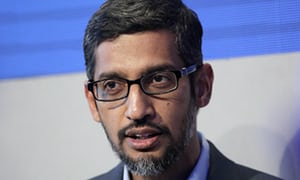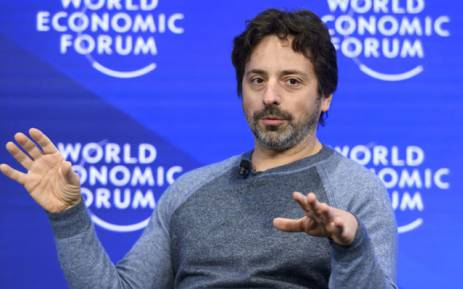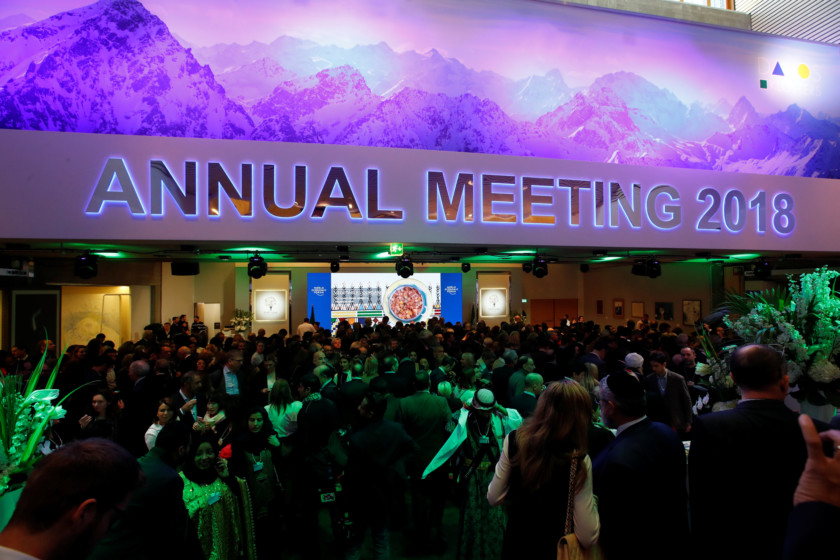
Davos: Google’s top executive said the search giant would welcome higher taxes.
Uber Technologies Inc’s new CEO said it must be more accommodating with regulators.
Salesforce.com Inc’s veteran leader Marc Benioff said Silicon Valley has been arrogant and compared Facebook to the tobacco industry.
At the World Economic Forum in Davos this week, executives struck a conciliatory note in an acknowledgement of a new reality for the world’s largest technology companies.
Unlike previous years at the gathering in Switzerland of the global elite, the companies are no longer seen primarily as positive engines of economic growth.
Power, influence
Governments, business leaders and the general public are coming to view Silicon Valley’s power and influence with caution and suspicion.
“We’re the same as any other industry,” Marc Benioff, the founder of the business software company Salesforce.com Inc, valued at $82 billion, said at a panel sponsored by CNBC.
“Financial services, consumer product goods, food — in technology, the government’s going to have to be involved. There is some regulation, but there probably will have to be more.”
Critical issues
The self-reflection comes in response to criticism the industry is facing globally on a range of critical issues:
election interference by Russia-backed groups;
spreading misinformation;
the distribution of extremist content;
lacklustre privacy protections;
antitrust violations;
tax avoidance;
and the threat of massive job losses as a result of advances in automation and artificial intelligence.
New warnings are being raised about the physiological effects of technology, including smartphone addiction and social media use harming mental health.
The companies said they want to work with authorities on a range of challenges, including accepting higher taxes.
“At Google, we want to serve everyone in the world — so billions of users every day — and with that comes a lot of responsibility,” Chief Executive Officer Sundar Pichai said during an interview.
“So we need to be open to feedback and engage more with the external world.”
Dara Khosrowshahi, who took over as CEO at Uber last year amid various government investigations related to the company’s aggressive business tactics, used Davos to continue a global apology tour.
He said the ride-hailing start-up took shortcuts in its quest for growth and now must work with regulators like London’s transportation authority, whose decision to revoke Uber’s taxi licence is being appealed.
“We have to break with the past,” Khosrowshahi said. Speaking earlier in the week in Germany, Khosrowshahi said, “We are now going from growth at all costs to responsible growth.” He also met with Jyrki Katainen, the European Commission’s vice president for jobs, growth, investment and competitiveness.
Privacy
The World Economic Forum is part of a wider European tour by many tech executives this week.
Sheryl Sandberg, Facebook’s chief operator officer, pledged in a speech in Brussels that the company would “do better” to boost privacy, combat hate speech and be more aggressive in combating efforts to manipulate its platform to influence elections.
Sandberg and Pichai also met separately with French President Emmanuel Macron, who has threatened to increase taxes on US tech companies, to tout new research centers and hiring.
Yet for all the diplomacy, many global leaders want to see companies take more action. UK Prime Minister Theresa May, a frequent critic of social media companies for not doing enough to prevent the spread of extremist content online, used a speech at Davos to urge investors to sell shares of technology companies if they don’t take more social responsibility, a clear swipe at Facebook, Twitter Inc and Google’s YouTube.
“Technology companies still need to go further in stepping up their responsibilities for dealing with harmful and illegal online activity,” May said.
George Soros struck out at Facebook and Google, declaring them monopolies that foster addiction, threaten independent thinking and risk empowering state-sponsored surveillance.
“They deliberately engineer addiction to the services they provide,” Soros said in a speech in Davos on Thursday. “This can be very harmful, particularly for adolescents.”
Soros compared the internet platforms to gambling companies, and said they may be permanently damaging human attention.
Soros also said he’s extremely concerned that some social media and technology companies may fall into “unholy marriages” with regimes in Russia and China, creating a “web of totalitarian control.”
Many technology executives acknowledged concerns about the consequences of automation and artificial intelligence on the global workforce. Pichai, who said this week that advances in artificial intelligence could be more significant than human mastery of fire or electricity, said companies must be open when explaining how the technology is being applied.
“The risks are substantial,” he said. “But the way you solve it is by looking ahead, thinking about it, thinking about AI safety from day one, and to be transparent and open about how we pursue it.”
Mike Gregoire, the chief executive of the business software company CA Inc, warned of “social unrest” if protections aren’t given to people whose careers are upended by new technologies. Ginni Rometty, CEO of IBM, said fellow tech executives must exert “responsible stewardship” when pushing new, disruptive technologies.
“These technologies are changing enough, they need guiding into this world, or we’re not going to like where we end up,” Rometty said during a panel in Davos on Thursday. “You must usher them in with purpose and transparency.”
Some technology executives turned on one another. Benioff criticised social media companies for creating addictive products. “I think that, for sure, technology has addictive qualities that we have to address, and that product designers are working to make those products more addictive, and we need to rein that back as much as possible,” Benioff said, saying there were “a lot of parallels” to cigarettes.
But some companies still tried to keep the vibe cosy. Several rented space where business leaders, politicians and the media could mingle with executives and escape the cold. At Google’s chalet showcasing its cloud-computing services there were free cookies and an Alps-inspired art installation. To illuminate the piece, a set of instructions asked people to hold hands while touching an electrical current. “Together we can create a world of shared opportunity,” the art description said.












